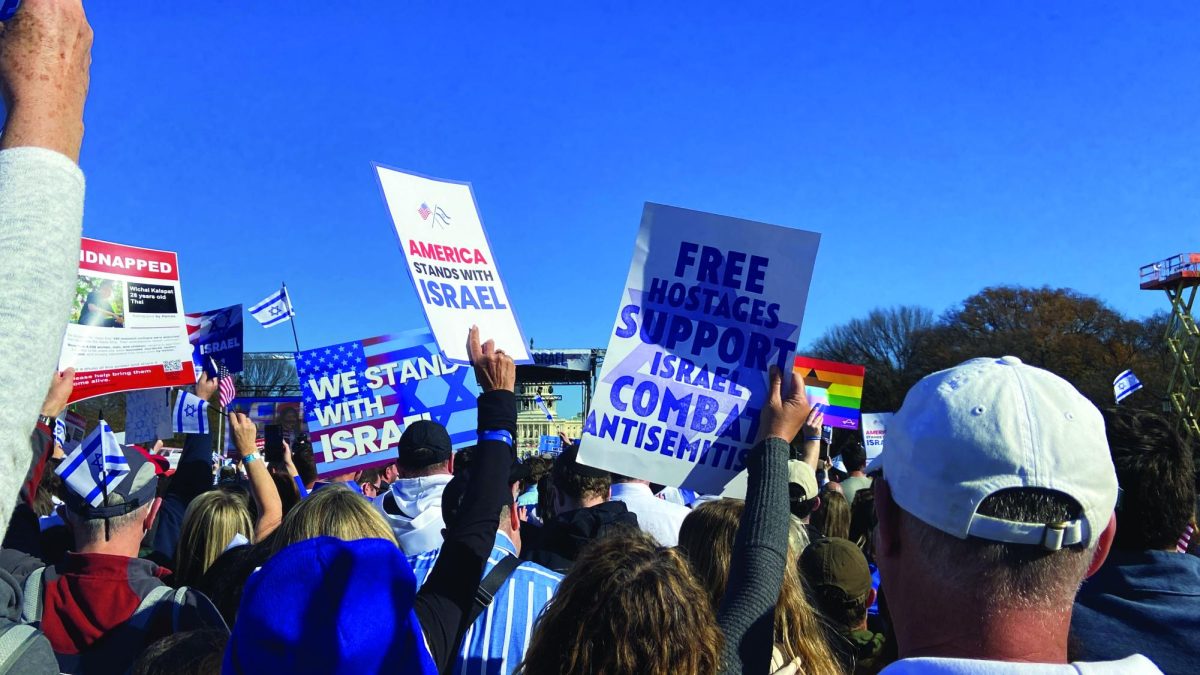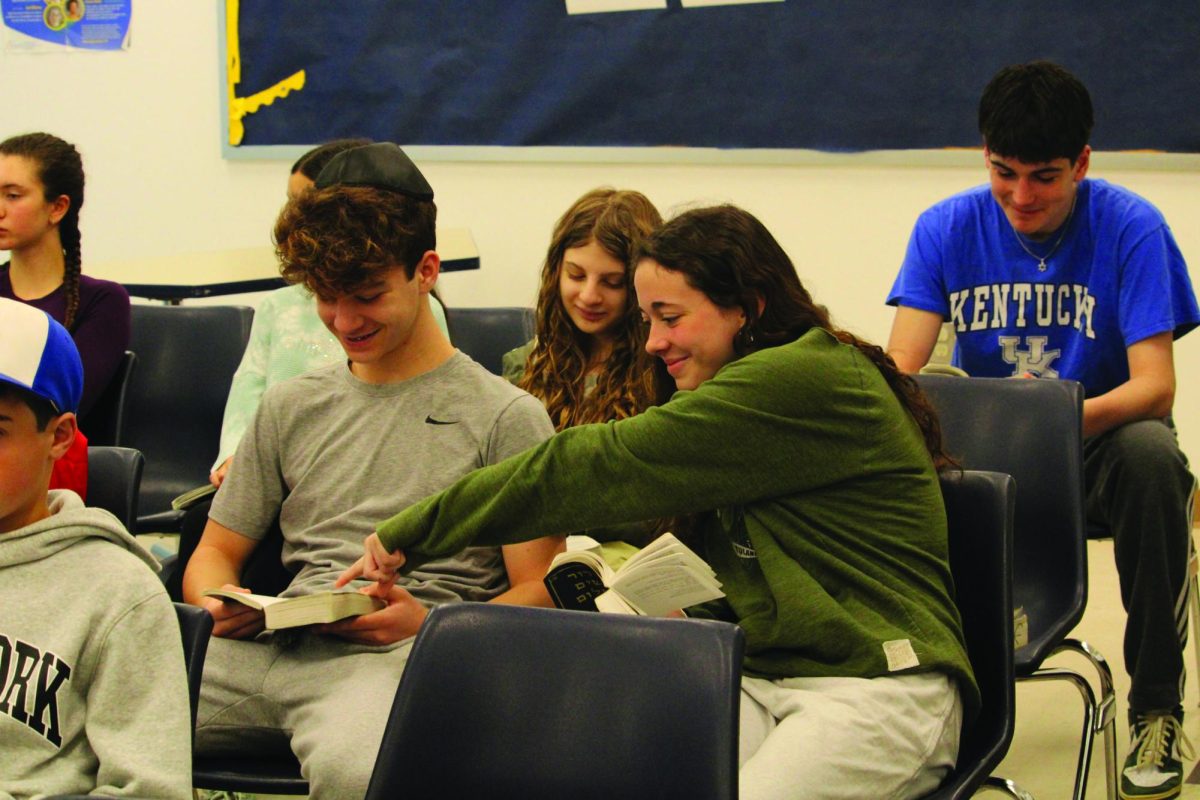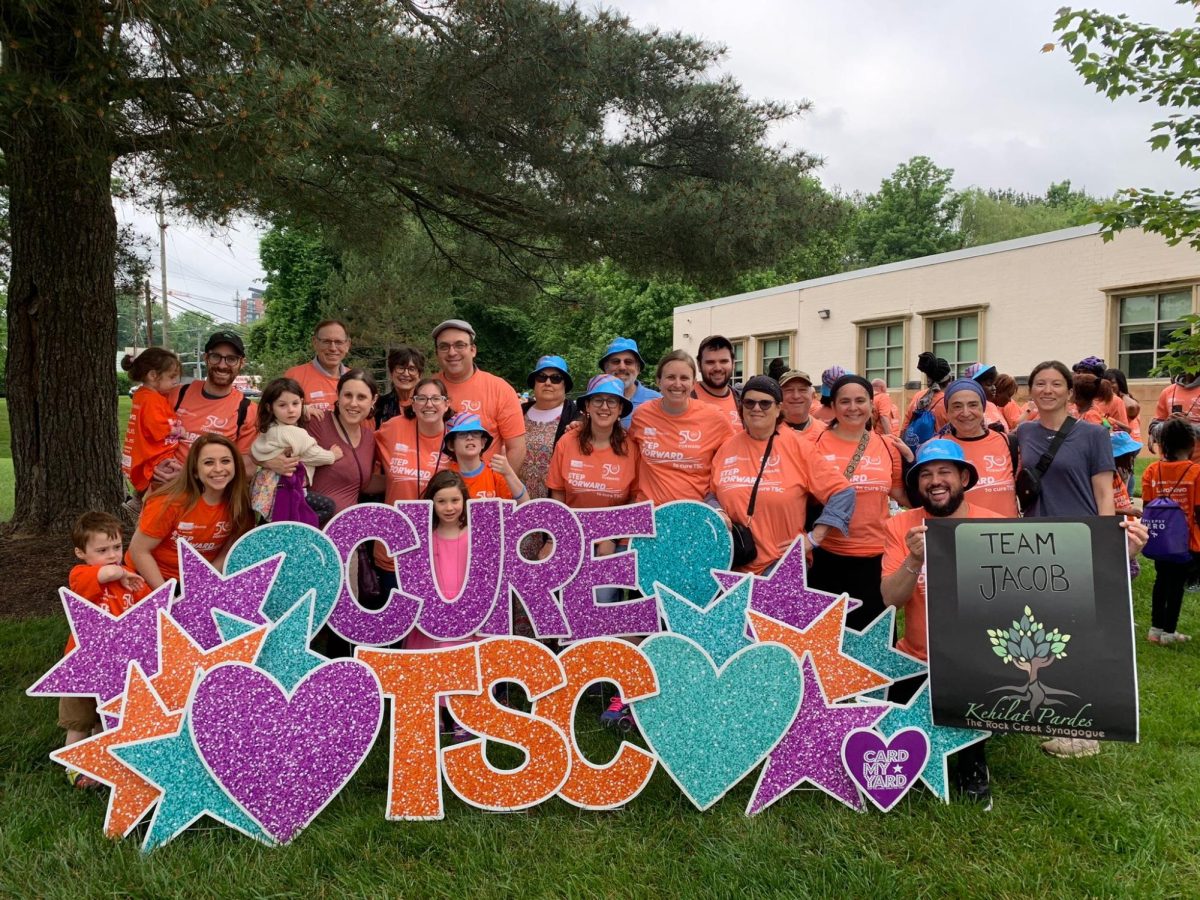Almost 300,000 people stood together on the Washington National Mall as Jews from across the country pray together for the return of hostages held captive by Hamas. It was Nov. 14, 2023, only a month after the beginning of the Israel-Hamas war, and this was the largest rally of Jewish people in U.S. history.
According to a study done by the Jewish Federations of North America, over 40% of American Jews have become more involved with some form of Judaism since Oct. 7. Rabbis and Jewish educators have referred to this phenomenon as “the surge”: an increase in Jewish life and the rediscovery of Jewish identity after Oct. 7.
Junior Ella Arking has felt a stronger connection to Judaism post-Oct. 7. While she was an Orthodox Jew before the attack, she now engages in more practices, and Judaism has become a bigger part of her life.
“I can be proud of that [my Judaism] and really incorporate that more in my life, because it’s really nice that I have the opportunity to come to school every day and pray and go to shul every Shabbat, whereas some people, it’s scary for them to do that, going to shul
is risking their life,” Arking said. “I think in general that’s why a lot of people are gravitating more towards Jewish institutions and becoming more Jewish as well, because it was a really scary event that made people realize, ‘Oh, I’m also a Jew.’”
In particular, “the surge” has manifested itself in Jewish institutions. This includes more enrollment in Jewish community centers, synagogues and Jewish day schools. Jewish education group, Primzah, reported that more than a third of Jewish day schools in North America saw increased inquiries from parents at some point after Oct. 7. Hillel International, a non-profit organization for Jewish life on college campuses, has had a 17% increase in participation over the past year, according to the New York Times.
Rabbi Ben Berger, Senior Vice President of Jewish Education, Community and Culture at Hillel International and parent of senior Tovah Berger, has seen the increase in Jewish life on campus firsthand. Especially during the months directly after Oct. 2023, Berger saw more people attending programs at Hillel such as vigils, services and educational classes.
“People are looking for people who are like them,” Berger said. “ … We worked hard to get campuses to really provide experiences that would be open and welcoming, and help students find Hillel early on, and there was a lot of concerted effort to take advantage of the surge.”
Berger has found that students are particularly interested in the Jewish and Israel educational classes that Hillel offers. In these cohort learning groups, students come together to study and discuss issues relating to Israel and the Jewish people. Additionally, more students have grown interested in ‘bridge-building programs,’ which bring together Jews and non-Jews on campus to talk to and learn from each other.
“The surge” has also been extremely influential on social media, with many influencers and famous Jewish people speaking about the Israel-Hamas war and the increase in antisemitism in the U.S.. One such influencer, Tik-tok-and-Instagramer Ellie Zeiler, decided to move to Israel and enroll in a seminary.
“I think we are seeing some of [celebrities speaking out about Judaism], whether it manifests as religious or not depends, but we are definitely seeing that type [of] response that people really just want a deep connection with their people right now,” Berger said.
Reconnection to religious identity has been a core part of “the surge.” According to the Jewish Chronicle, synagogues across the country have seen an increase in member participation. The Reform Movement had around 3,000 people interested in conversion this year, according to the New York Times.
In the CESJDS community, this year there was an increase of students in prayer options for Zman Kodesh (ZK). 52% of students enrolled in a davening ZK compared to the 44% from last year. Jewish Life Chair and math teacher Robbie Shorr attributes this increase to an increased drive to connect, which may have been influenced by the events of Oct. 7.
“I think people across the board in the high school … are more willing to have vulnerable talks about spirituality, regardless of their own personal, traditional preferences,” Shorr said.







